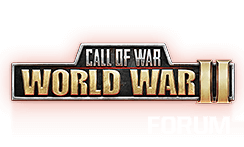Day 4 - Continued
While flipping through reports from the front, the Emperor received a message from Australia. They lauded the Emperor's military achievements and then said "I want to be Business partners". He was confused, they had already agreed to non-aggression and given each other right-of-way at the start of the war. What more could Australia need from the empire?
The Emperor made clear that he was not interested in forming a coalition with lowly Australia, if that's what they were implying. He was insulted, why would such a petty nation think themselves our peer? A reply came some time later asking only to trade oil. Eventually an agreement was worked out to sell ten thousand goods at seven per unit. The Emperor took this time to make clear to Australia that the Axis stood between him and global unity. He also instructed this lesser nation that he should seek conflict with the United States if he wished to expand his territory further.
He knew there was little hope of maintaining peace in the south Pacific indefinitely, but Germany was the greater threat and had to be eliminated. The Axis, at this time, had crushed France and appeared poised to invade Britain. Should they fall, there would be no one standing between Germany and total domination of Europe.
While flipping through reports from the front, the Emperor received a message from Australia. They lauded the Emperor's military achievements and then said "I want to be Business partners". He was confused, they had already agreed to non-aggression and given each other right-of-way at the start of the war. What more could Australia need from the empire?
The Emperor made clear that he was not interested in forming a coalition with lowly Australia, if that's what they were implying. He was insulted, why would such a petty nation think themselves our peer? A reply came some time later asking only to trade oil. Eventually an agreement was worked out to sell ten thousand goods at seven per unit. The Emperor took this time to make clear to Australia that the Axis stood between him and global unity. He also instructed this lesser nation that he should seek conflict with the United States if he wished to expand his territory further.
He knew there was little hope of maintaining peace in the south Pacific indefinitely, but Germany was the greater threat and had to be eliminated. The Axis, at this time, had crushed France and appeared poised to invade Britain. Should they fall, there would be no one standing between Germany and total domination of Europe.

